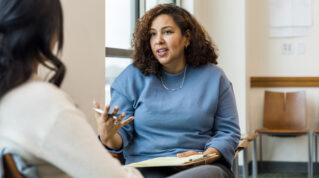Maths anxiety affects individuals of all ages worldwide, but in the UK reported rates of anxiety peak, with even six-year-old children experiencing anxiety related to numbers.
Post-pandemic, maths anxiety is higher than ever. Remote learning made it more challenging for teachers to provide one-to-one support for pupils in need, while increasing the stress for children learning at home with parents who suffer with maths anxiety themselves. Like many primary schools, we felt the impact of this upon returning to the classroom.
Pupils were displaying greater apprehension than usual around maths, and most surprising of all, anxiety was highest among our more able learners. Children known for being ‘good’ at maths suddenly felt worried that they should know the answer to a particular question, while our less confident pupils didn’t want to participate in lessons for fear of getting it wrong.
Over the past year we’ve implemented several initiatives to tackle this issue and re-build pupils’ confidence with numbers. Here are some of the steps we’ve taken to create a nurturing environment where every child feels they can become a maths child.
Solving problems together
The independent nature of maths learning can make it a nerve-wracking experience for some children. School closures exacerbated this feeling, so we’ve focused on embedding more engaging social activities in class which encourage pupils to work together. Group games and competitions, such as the free 48-hour World Maths Day challenge, have proved highly effective in helping children to relax and have fun with numbers.
Given pupils will have different learning gaps post-pandemic, it’s important to choose interactive competitions with a variety of topics so that there is something for every level. This encourages children to celebrate the maths they do know and be curious with a ‘try and try again’ approach for any topics they might not understand. We found children were less embarrassed about answering a question incorrectly when working through the challenges with their peers. This inspired many of our pupils to try more challenging topics, which was wonderful to see.
Maths mastery
Post-Covid, we’re encouraging children to take ownership of their maths learning. This includes getting pupils to write their own questions which removes the ‘unknown’ aspect about maths tests which frightens many children. Teaching pupils about the growth mindset model – the concept that skills can be developed and improved through regular practice – and various breathing techniques to use if they feel overwhelmed during lessons have also been well-received.
Tackling misconceptions
The perception of maths being more difficult than other subjects leads many children to cast themselves as ‘good’ or ‘bad’ at numbers before they’ve even tried. This results in low self-esteem and difficulty concentrating in lessons.
To tackle these misconceptions and make numbers more relevant to pupils, we bring external speakers to talk about how they use maths in their everyday life and careers. Hearing from a diverse range of people, from fashion designers to engineers, has helped pupils to understand the real-life value of maths and the different career pathways available. It has also introduced pupils to STEM role models from all backgrounds and the idea that anyone can succeed in maths – including themselves.
Parental engagement
Bringing parents along their child’s maths journey is key for breaking down barriers to engagement. We started running workshops with parents at the start and end of the year to give them an overview of the maths curriculum, show them how we teach topics and share resources and techniques to better support their child’s learning at home. For example, providing tips on positive vocabulary to use at home and phrases to avoid, such as, “I used to struggle with this” or “I don’t understand it either.” This language can reinforce feelings of negativity and nervousness amongst children.
Maths provides wonderful skills for life including creativity, critical thinking and problem-solving – yet today eight million adults in England have the numeracy skills of primary school children – putting them on the back foot. It’s time to change the narrative and give children the best possible start with maths, so they can excel in all aspects of life.
















Your thoughts